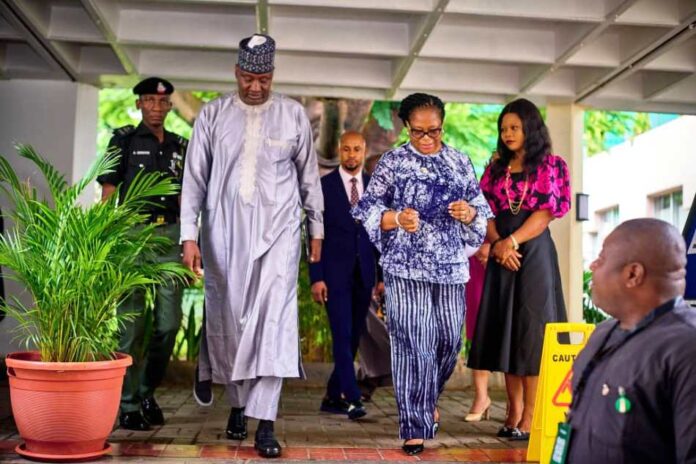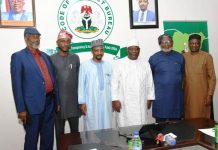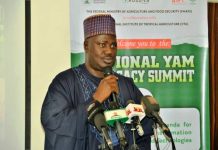The Federal Ministry of Environment in collaboration with the Africa Policy Research Institute (APRI), has convened a stakeholders’ engagement to ensure the mitigating methane emissions, recognizing its significant impact on the environment, public health, and economic growth.
At the two-day event in Abuja yesterday with the theme ‘Clearing the Air: Advancing Methane Mitigation and Reduction in Nigeria’s Oil and Gas Sector‘, Minister of Environment, Balarabe Abbas Lawal, highlighted that “methane, a potent greenhouse gas, drives climate change and air pollution while posing severe public health risks, especially respiratory illnesses affecting communities near emission sources.”
The Minister who was represented by the Permanent Secretary, Mahmud Adam Kambari disclosed that economically, gas flaring and leaks have led to the wastage of valuable energy resources that could have been channeled into powering industries, homes so as to drive national development and youth employment in the country.
Lawal emphasized that “Nigeria has shown strong leadership by endorsing the Paris Agreement and embedding a 61% methane reduction target for the oil and gas sector in its 2021 Nationally Determined Contribution (NDC).
“Our recognition as a Global Methane Pledge Champion reflects this dedication to accelerating methane reduction in line with global climate goals.” he said.
The Minister emphasized that the National Gas Policy and the Nigerian Gas Flare Commercialisation Programme (NGFCP) are frameworks set up by the government to promote the capture and productive use of associated gas to reduce flaring.
He explained that concerted efforts have also been made to enforce improved guidelines and monitoring protocols for methane leak detection and repair through the Nigerian Upstream Petroleum Regulatory Commission (NUPRC), thus bolstering regulatory compliance and environmental safeguards.
“Complementing these efforts, investments in advanced sensors and satellite technologies enable real-time, precise methane emissions tracking, enhancing Nigeria’s capacity for swift response and accountability,” he added.
The Minister noted that mitigating methane emissions is not merely an environmental responsibility but also a promoter of economic growth, job creation, energy conservation, and attracting investments essential for national development.
“The Ministry, in collaboration with the Africa Policy Research Institute (APRI), and other relevant Stakeholders are advancing and highlighting key priorities that includes strengthening policy implementation, adopting innovative best practices, fostering stakeholder collaboration, and building capacity through awareness as well as training programmes.” Lawal further explained.
While reiterating the present administration’s Renewed Hope Agenda on environment for commitment to a cleaner, healthier environment for its current and future generations, he concluded, “through collaboration, dialogue, and decisive action, we can reduce methane emissions and advance sustainable growth within Nigeria’s oil and gas sector.”
Earlier, the Permanent Secretary, Mahmud Kambari in his welcome address stated that Nigeria, as a leading oil and gas producer in Africa, recognizes the urgent need for decisive action in mitigating greenhouse gas emissions, particularly methane.
The Permanent Secretary, represented by the Director, Department of Climate Change, Dr. Iniobong Abiola-Awe noted that Methane, with its potent warming capability and harmful effects on both climate and human health, demands urgent attention, highlighting that Mr President’s reaffirmation of Nigeria’s commitment to end gas-flaring at COP28 reflects the seriousness with which the country is approaching the issue.
According to him, the forum is a platform to delve into the complexities of methane mitigation and reduction within our oil and gas industry, noting that the launch of the report that will be presented at the meeting provides a comprehensive overview of existing policies, implementation strategies, and key stakeholders involved in these efforts.
“It is through such rigorous research and collaborative endeavours that we have identified gaps, challenges, and opportunities for effective action”, he said.
While commending the organizers for fostering collaboration and dialogue among diverse stakeholders, Kambari noted that the event underscores the importance of data-driven policy-making and the need for robust implementation strategies tailored to the unique realities of Nigeria’s oil and gas sector.
“As representatives of various sectors, we have a shared responsibility to prioritize methane mitigation and reduction as part of our broader climate action agenda. Let us seize this opportunity to chart a unified course toward a greener, more sustainable future for Nigeria and the planet as a whole”, he maintained.
Dr. Olumide Abimbola, Executive Director, APRI – Africa Policy Research Institute, highlighted that APRI is an Africa and Europe-based, African-led think tank that is committed to amplifying African voices in global decision-making arenas where African perspectives are too often missing.
He stated that the Institute’s Methane Mitigation Programme focuses on practical solutions that match the urgency and the opportunity of methane action.
According to him, the science is clear: reducing methane quickly is one of the fastest ways to slow warming while improving public health and supporting inclusive growth.”
The engagement brought together regulators, industry leaders, civil society organisations, development partners, and the research community to brainstorm on bold steps to urgently advance Methane Mitigation and Reduction in Nigeria’s Oil and Gas Sector.
Highlights of the day include the presentation of the Report on the findings by the Honourable Minister, Balarabe Abbas Lawal, Paper Presentation by relevant Experts as well as a Panel Discussion on Bridging the Gap: Strengthening Multi-Stakeholder Collaboration for Nigeria’s Methane Reduction Agenda.
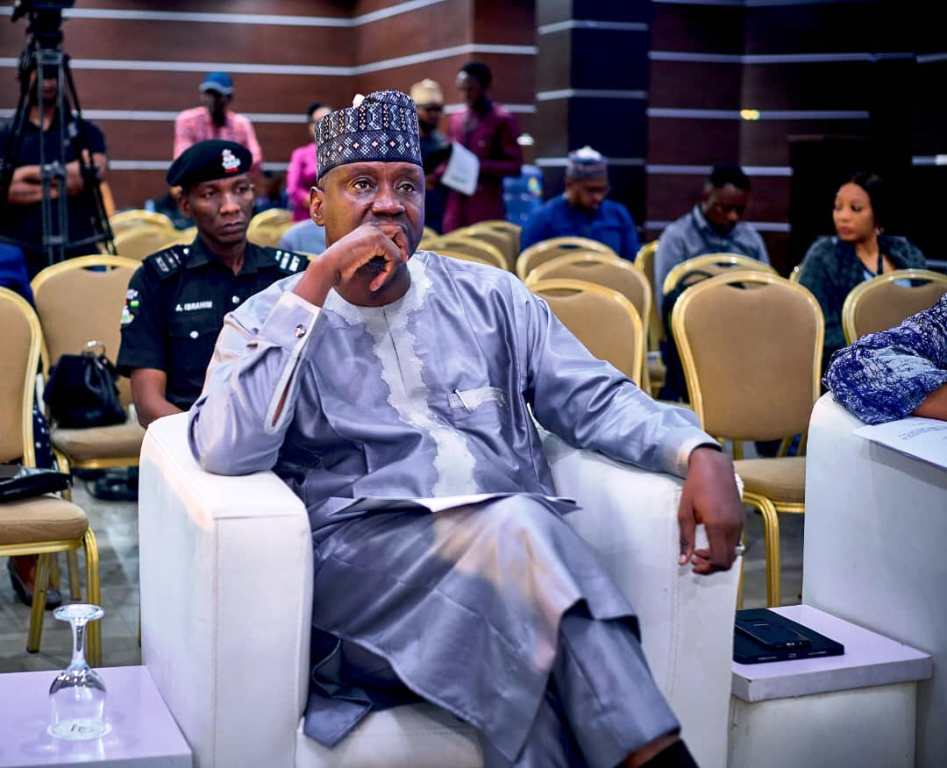
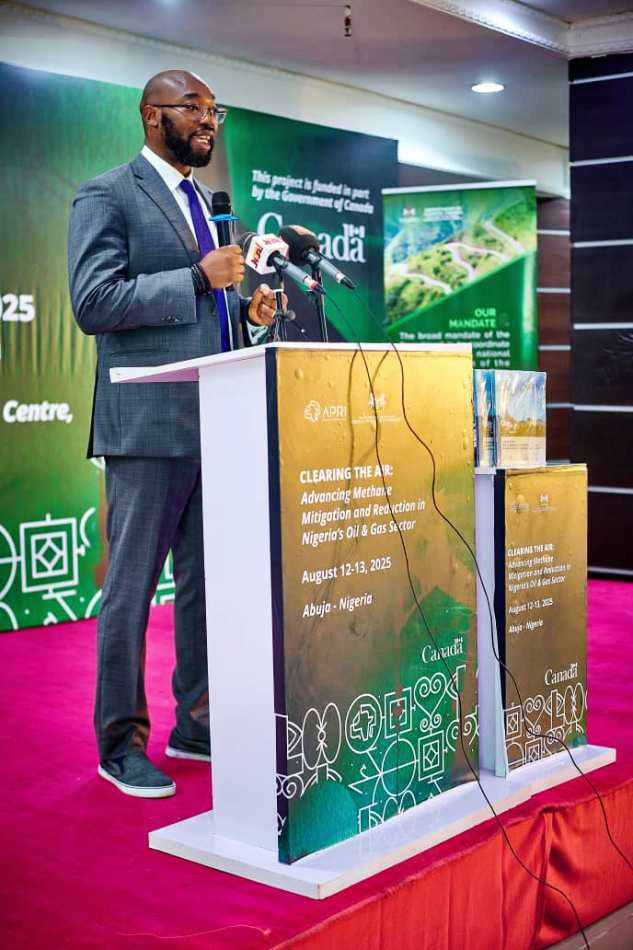
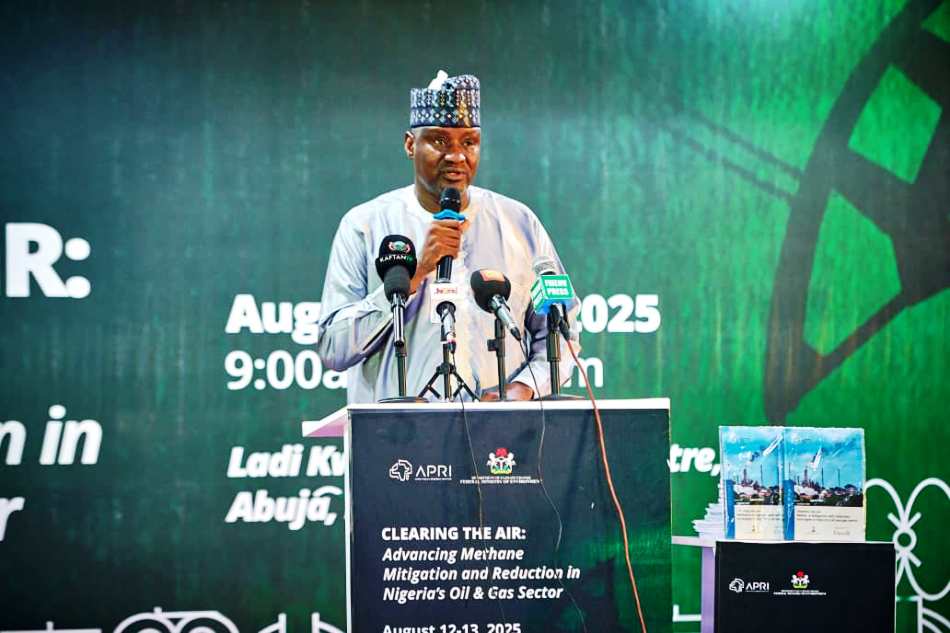
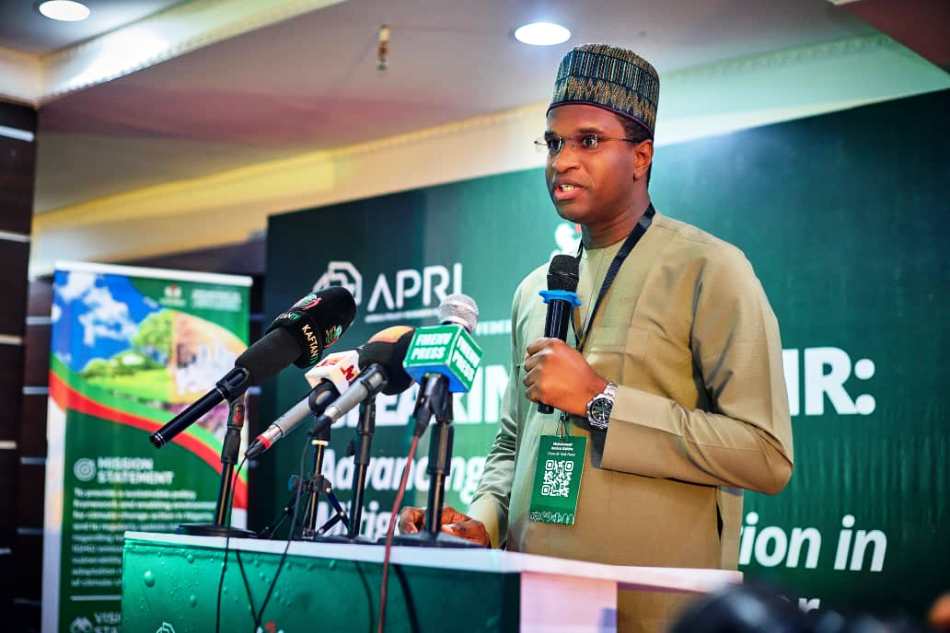
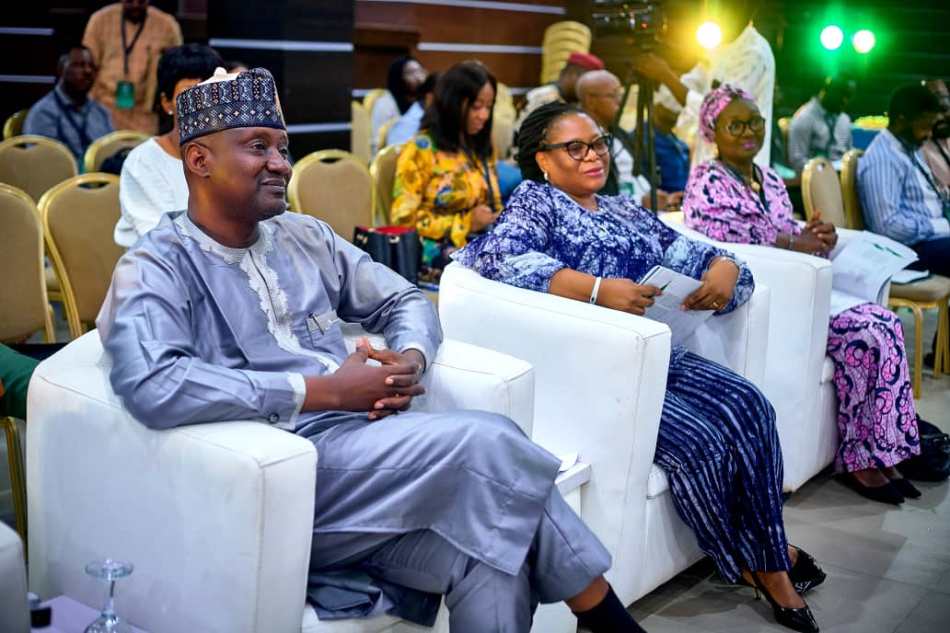
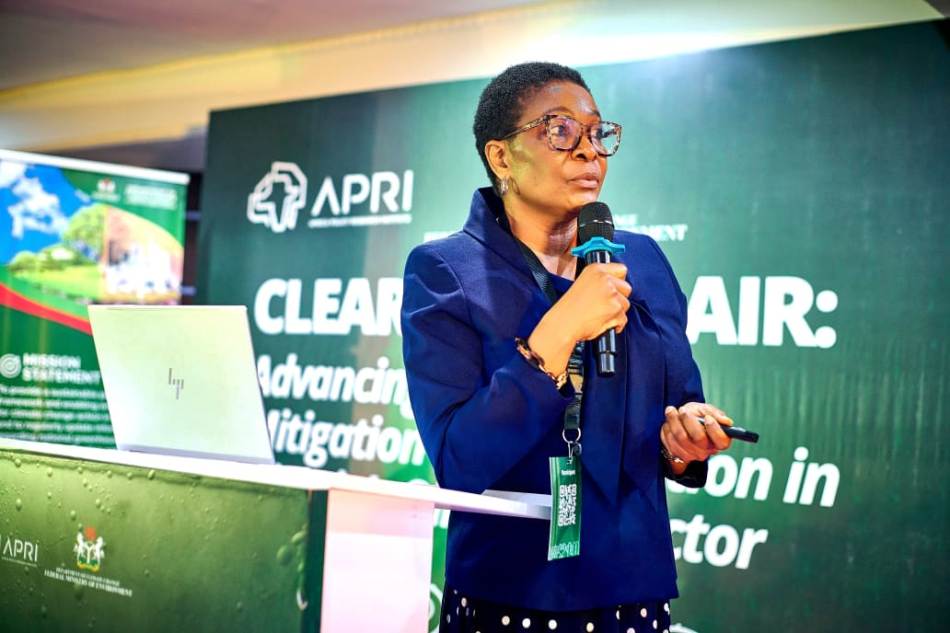
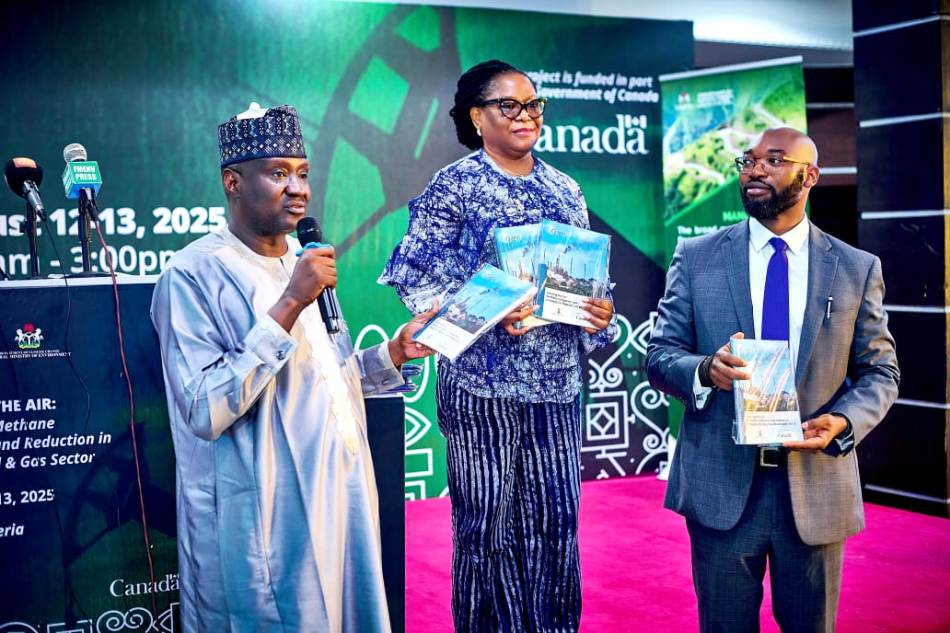
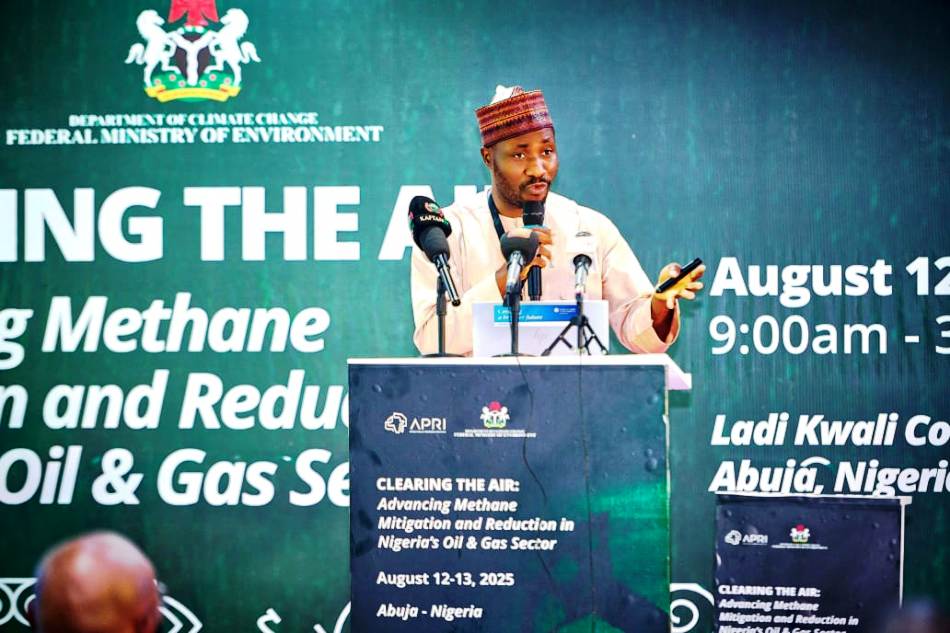
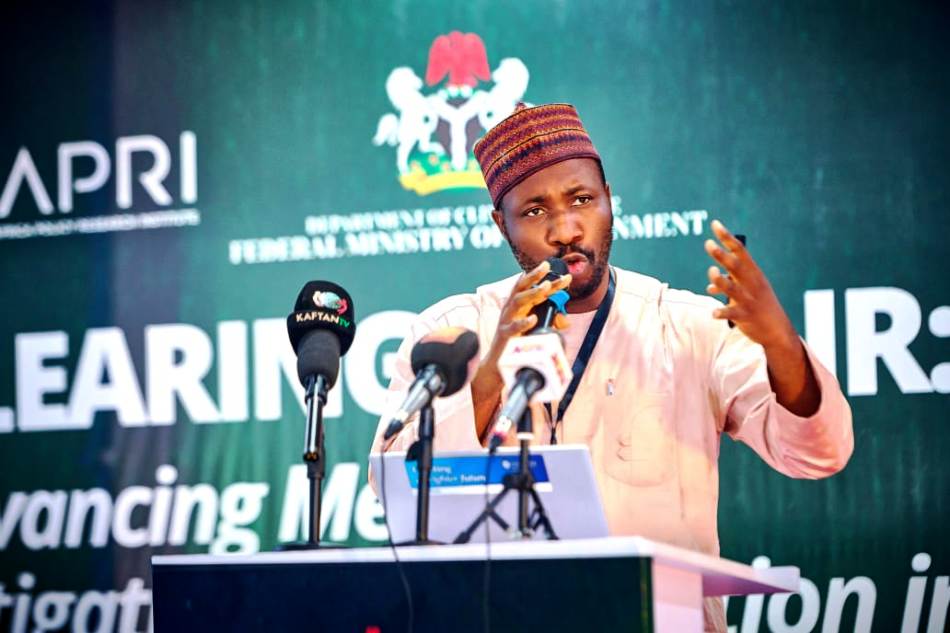
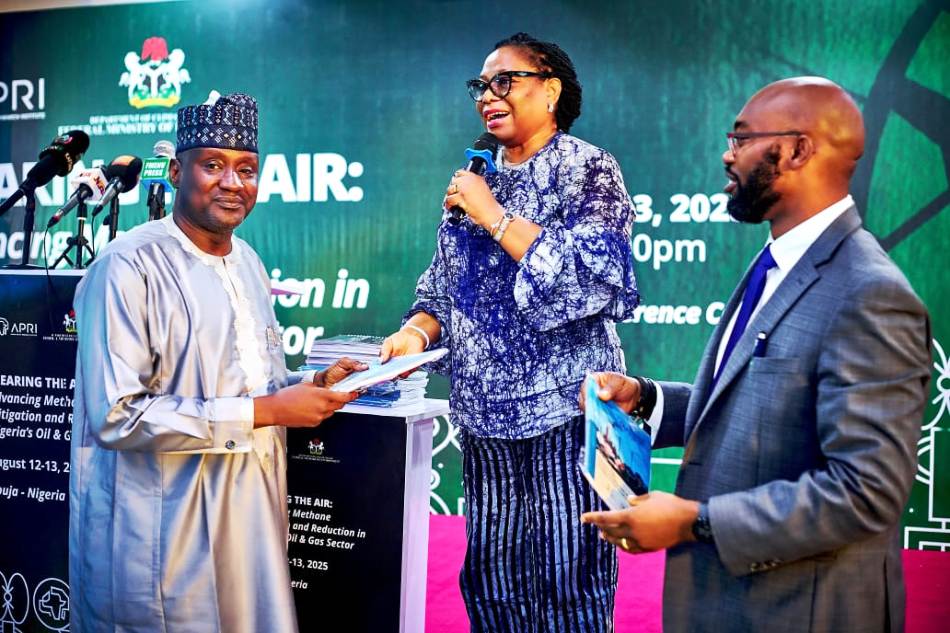
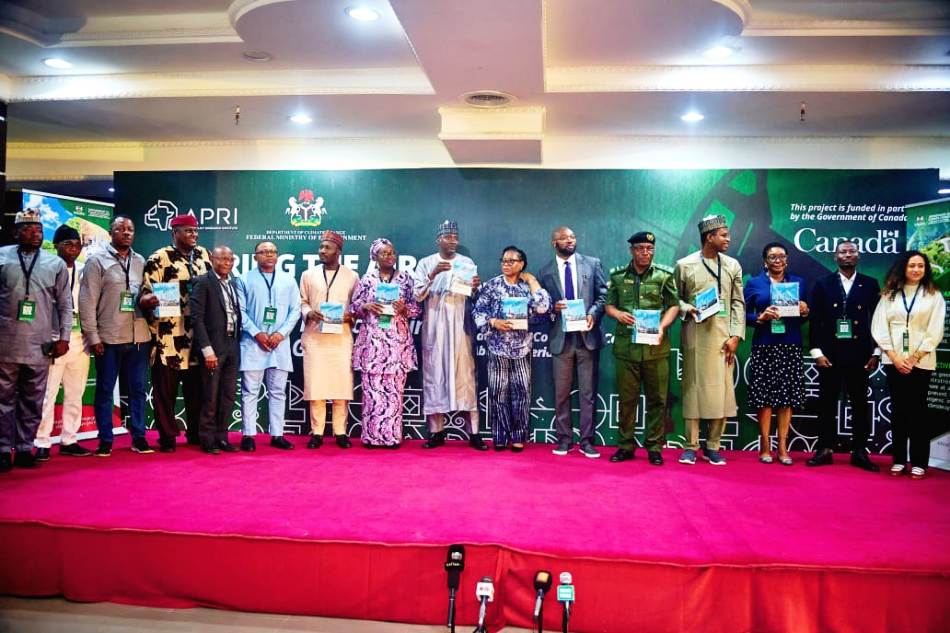
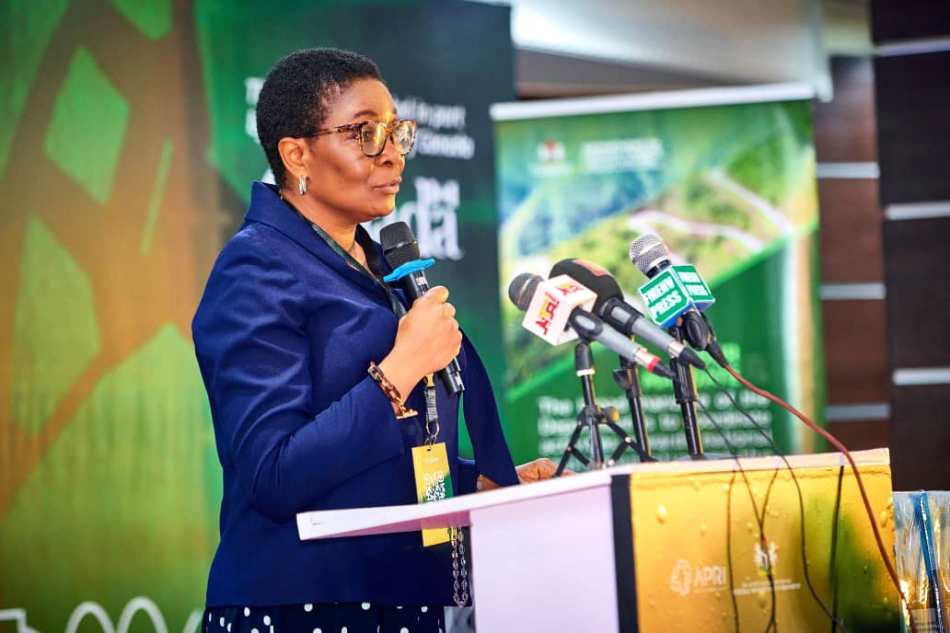
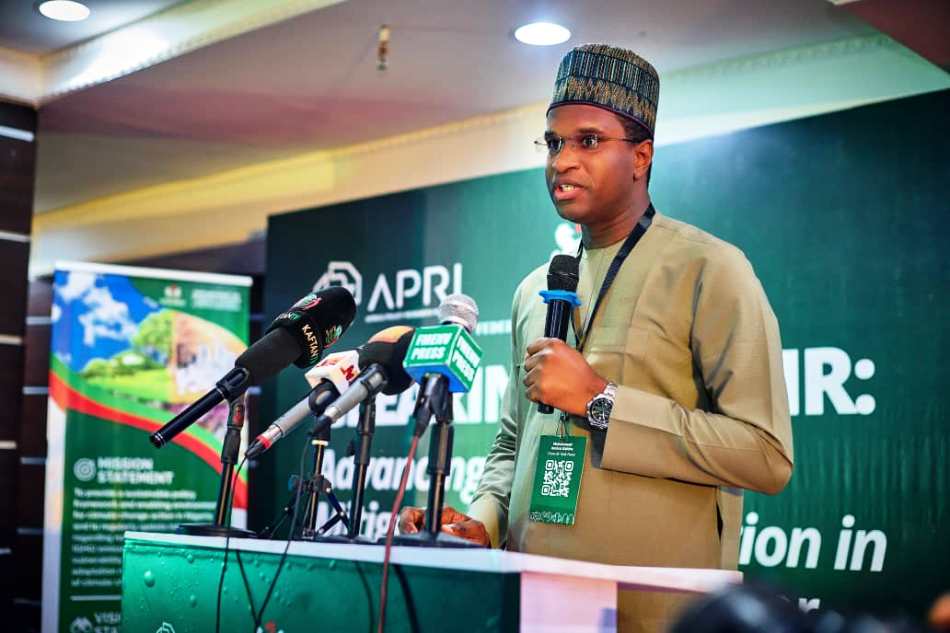
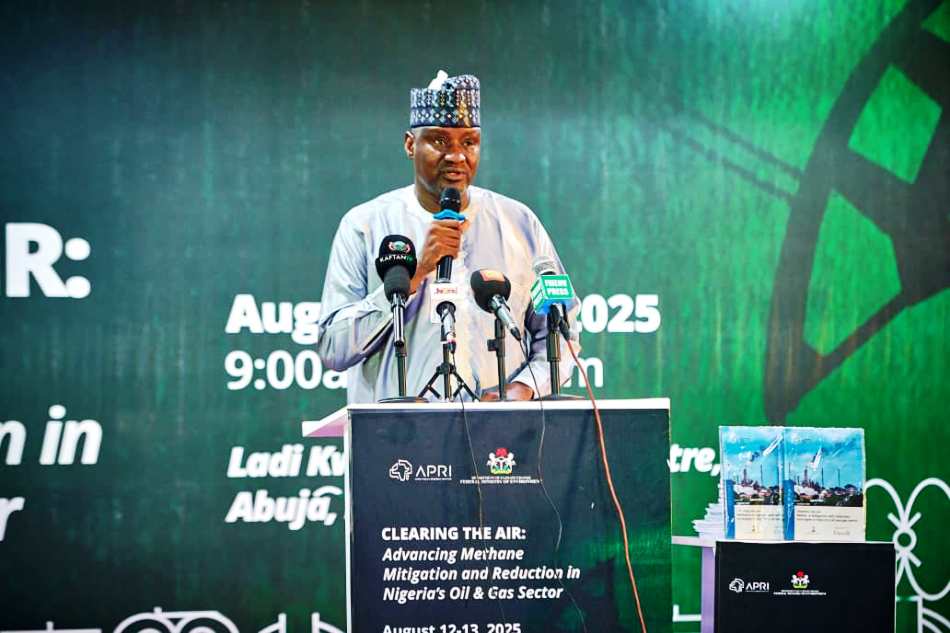
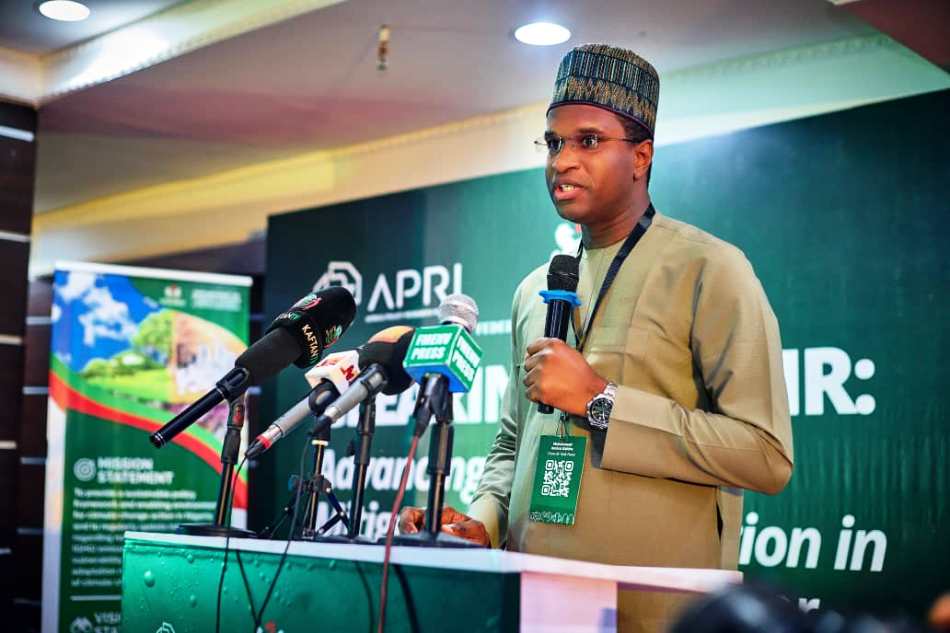
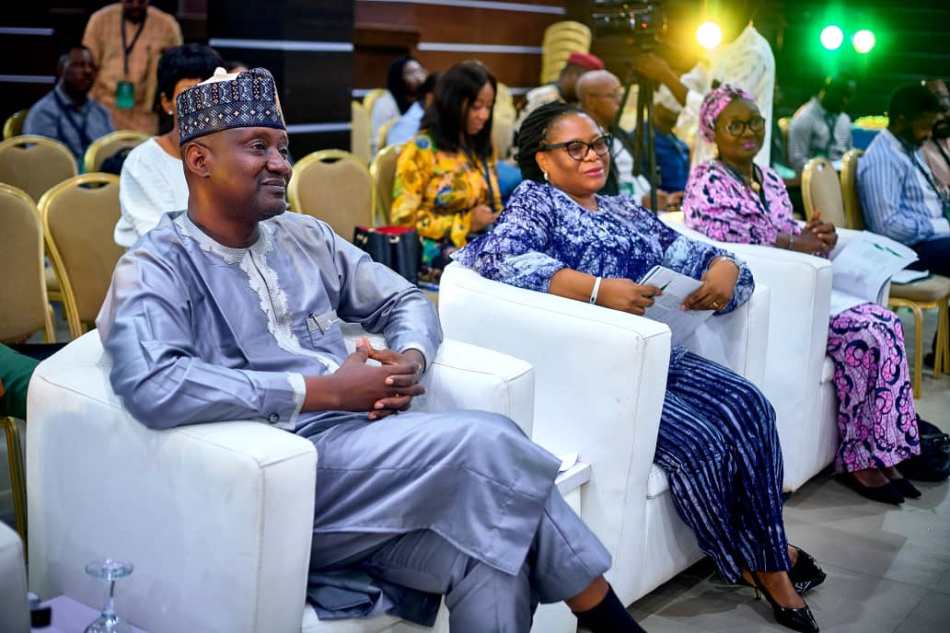
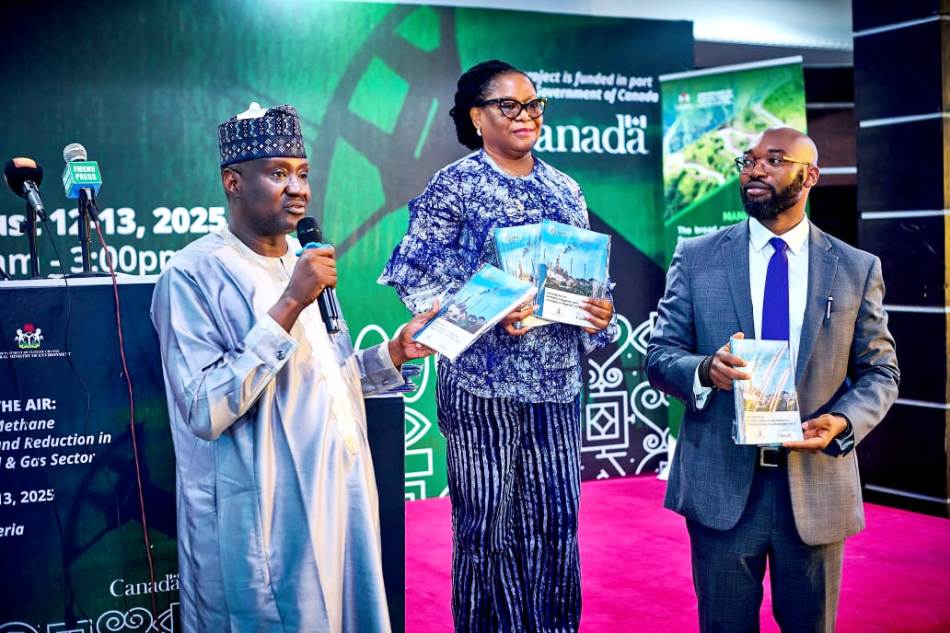
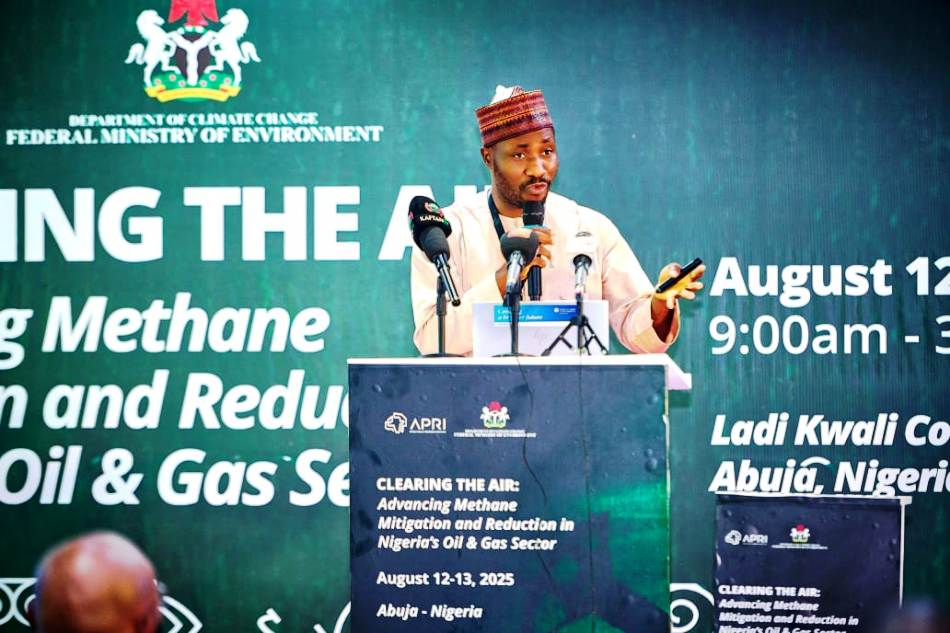
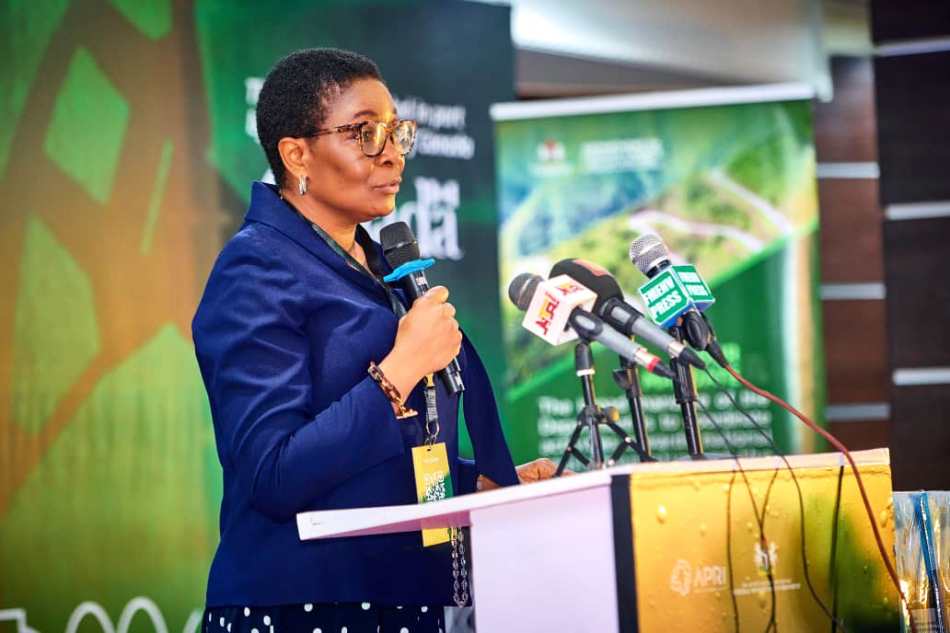
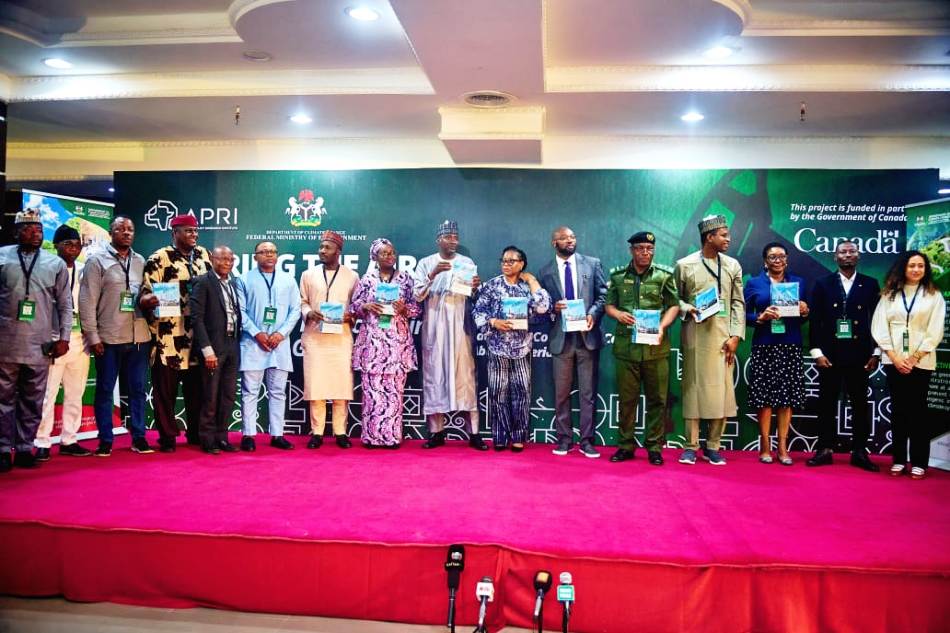
Signed
Ibrahim Haruna
Director, Information



